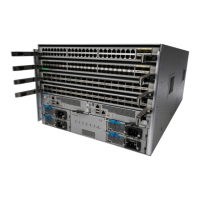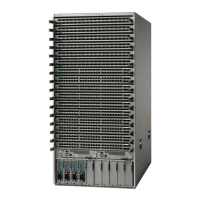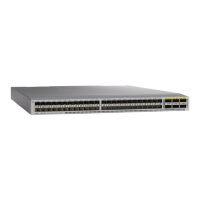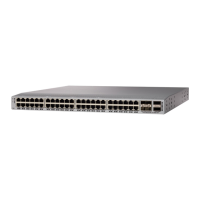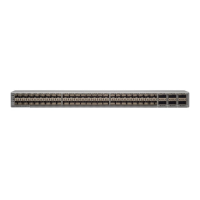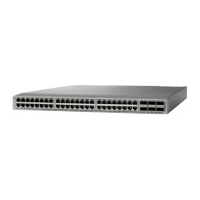CHAPTER 4
Connecting the Switch to the Network
•
Guidelines for Connecting Ports, page 39
•
Connecting a Console to the Switch, page 40
•
Connecting the Management Interface, page 42
•
Creating the Initial Switch Configuration, page 42
•
Connecting Interface Ports, page 44
Guidelines for Connecting Ports
You can use C Form-factor Pluggable (CFP), Quad Small Form-Factor Pluggable (QSFP+ or QSFP28), or
Small Form-Factor Pluggable (SFP, SFP+ or SFP28) transceivers or RJ-45 connectors to connect the ports
on the line cards to other network devices.
For information about the transceivers currently being used with the switch, use the show inventory all
command.
To prevent damage to the fiber-optic cables that can separate from their cables, we recommend that you keep
the transceivers disconnected from their fiber-optic cables when installing the transceiver in the line card.
Before removing such a transceiver from the switch, remove the cable from the transceiver.
To maximize the effectiveness and life of your transceivers and optical cables, do the following:
•
Wear an ESD-preventative wrist strap that is connected to an earth ground whenever handling transceivers.
The switch is typically grounded during installation and provides an ESD port to which you can connect
your wrist strap.
•
Do not remove and insert a transceiver more often than is necessary. Repeated removals and insertions
can shorten its useful life.
•
Keep the transceivers and fiber-optic cables clean and dust free to maintain high signal accuracy and to
prevent damage to the connectors. Attenuation (loss of light) is increased by contamination and should
be kept below 0.35 dB.
◦
Clean these parts before installation to prevent dust from scratching the fiber-optic cable ends.
Cisco Nexus 9508 NX-OS Mode Switch Hardware Installation Guide
39
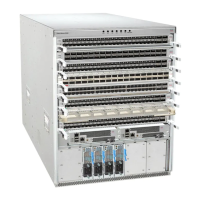
